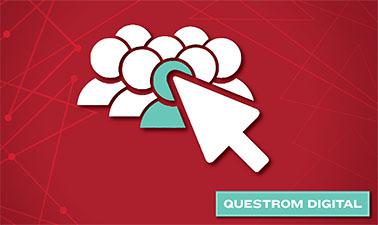Strategic Social Media Marketing
Train your employees in the most in-demand topics, with edX for Business.
Skip About this course
Social media technologies are continuously transforming the ways consumers interact with each other and firms. These changes constitute a fundamental shift in the marketplace–consumers have greater opportunities to voice their opinions and connect with their peers as well as increased influence over marketers and brands.
In this course, part of the Digital Product Management MicroMasters program, we examine how organizations capitalize on social media and consumer-to-consumer interactions to support their marketing efforts. We view these issues from a strategic and a practical perspective, rather than a technical or platform perspective. We will give you the knowledge you need to create engaging content for platforms such as Facebook, Instagram, Twitter, and Snapchat and how to identify influencers, deliver content to a targeted audience, and measure the success of your efforts.
Understanding social media is crucial for product managers who will be operating in a digital environment. Product managers will learn how to use social media conversations to inform their decision-making and how to leverage social media to promote their products, services and the brand. Additionally, learners will gain an understanding of how social media can be used to achieve specific organizational objectives and to measure the effectiveness of those efforts.
Skip What you’ll learn
- How to develop a social media marketing strategy
- How to develop and deliver content that engages consumers and is strategically integrated across platforms
- How to measure the effectiveness of social efforts.
- How social media can be used to listen to consumers,monitor their behavior, and engage them in co-creation of products and services
- How to manage social media
Skip Syllabus
Week 1: A Strategic Perspective on Social Media Marketing
Introduction to social media and how it has altered the consumer decision-making process and communications paradigm. Describe the role of social media in marketing strategy and assess the tradeoffs in using social media relative to traditional communication methods. Learn how to set social media marketing objectives that are linked to business objectives.
Week 2: Leveraging Networks
Understand the role of networks in the distribution of content, including network structure and how it affects the flow of information. Learn how to leverage online networks and communities to engage consumers in brand-related conversations. Discuss how to identify influencers and their role in distributing content.
Week 3: Creating Engaging Content
Learn how to create social media content that attracts and retains consumers’ attention and motivates engagement and sharing. Describe the role of storytelling in a digital landscape. Understand how to evaluate and select platforms for distributing content.
Week 4: Social Media Listening and Co-Creation
Examine how social media listening is integrated into marketing decision making. Introduction to approaches to social media listening and how to draw inferences from listening data. Learn how social media is used to facilitate open innovation and co-creation.
Week 5: Assessing Social Media ROI
Introduction to a framework for assessing the return on investment of social media activities. Describe metrics for measuring the success of social media efforts and explore the role of analytics in linking these metrics to the bottom line. Understand the role of paid media in social media marketing.
Week 6: The Role of Social Media in the Organization
Describe organizational approaches to managing social media and developing social media policy. Discuss how to manage specific issues in social media, including negative feedback, online reviews, and crisis management. Identify ethical conflicts and issues associate with social media marketing decisions.
Barbara Bickart
Senior Associate Dean and Associate Professor of Marketing
Boston University

-
Official and Verified
Receive an instructor-signed certificate with the institution’s logo to verify your achievement and increase your job prospects
-
Easily Shareable
Add the certificate to your CV or resume, or post it directly on LinkedIn
-
Proven Motivator
Give yourself an additional incentive to complete the course
-
Support our Mission
EdX, a non-profit, relies on verified certificates to help fund free education for everyone globally
Unfortunately, learners from one or more of the following countries or regions will not be able to register for this course: Iran, Cuba and the Crimea region of Ukraine. While edX has sought licenses from the U.S. Office of Foreign Assets Control (OFAC) to offer our courses to learners in these countries and regions, the licenses we have received are not broad enough to allow us to offer this course in all locations. EdX truly regrets that U.S. sanctions prevent us from offering all of our courses to everyone, no matter where they live.
Train your employees in the most in-demand topics, with edX for Business.



